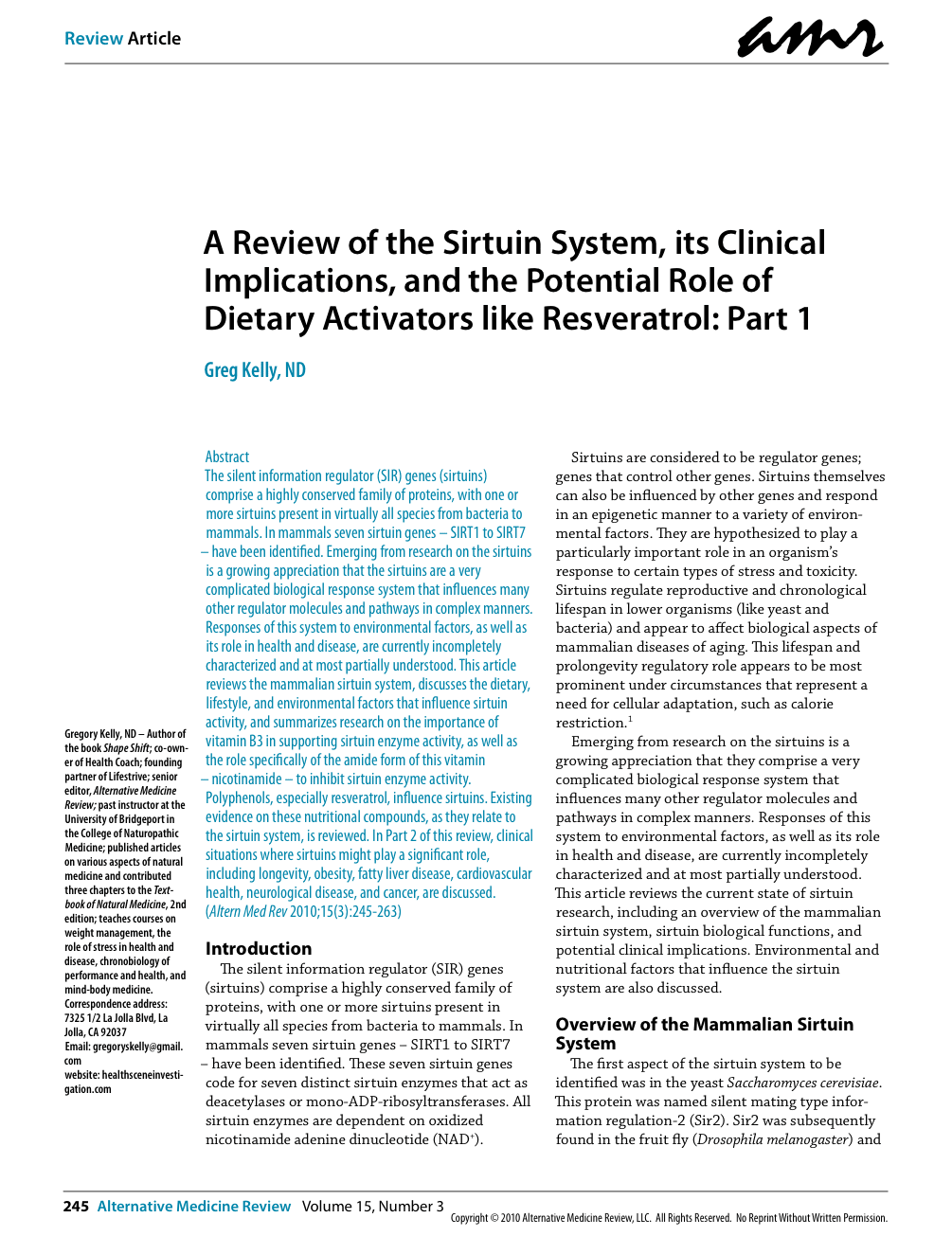Abstract
The silent information regulator (SIR) genes (sirtuins) comprise a highly conserved family of proteins, with one or more sirtuins present in virtually all species from bacteria to mammals. In mammals seven sirtuin genes – SIRT1 to SIRT7 – have been identified. Emerging from research on the sirtuins is a growing appreciation that the sirtuins are a very complicated biological response system that influences many other regulator molecules and pathways in complex manners. Responses of this system to environmental factors, as well as its role in health and disease, are currently incompletely characterized and at most partially understood. This article reviews the mammalian sirtuin system, discusses the dietary, lifestyle, and environmental factors that influence sirtuin activity, and summarizes research on the importance of vitamin B3 in supporting sirtuin enzyme activity, as well as the role specifically of the amide form of this vitamin – nicotinamide – to inhibit sirtuin enzyme activity. Polyphenols, especially resveratrol, influence sirtuins. Existing evidence on these nutritional compounds, as they relate to the sirtuin system, is reviewed. In Part 2 of this review, clinical situations where sirtuins might play a significant role, including longevity, obesity, fatty liver disease, cardiovascular health, neurological disease, and cancer, are discussed. (Altern Med Rev 2010;15(3):245-263)

